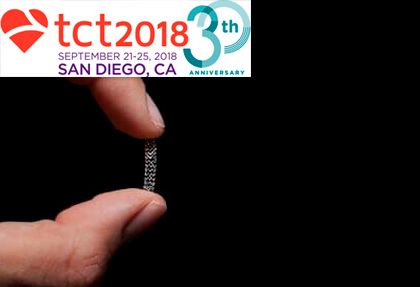The IMPERIAL trial compared the safety and efficacy of a nitinol self-expanding polymer-free placlitaxel-eluting stent (Zilver PTX, Cook Medical, already approved by the US Food and Drug Administration [FDA]) and a nitinol self-expanding polymer-coating placlitaxel-eluting stent (Eluvia, Boston Scientific).
 This was a single-blind randomized trial in patients with symptomatic intermittent claudication (Rutherford categories 2, 3, or 4) and native superficial femoral artery or proximal popliteal artery lesions.
This was a single-blind randomized trial in patients with symptomatic intermittent claudication (Rutherford categories 2, 3, or 4) and native superficial femoral artery or proximal popliteal artery lesions.
The primary efficacy endpoint was primary vessel patency as determined by Doppler echocardiography at 12 months after the procedure. The primary safety endpoint was all-cause death, target-limb amputation, or repeat revascularization, at 12 months.
The trial included 465 patients randomized 2:1 (Eluvia n = 309 and Zilver PTX n = 156). Primary patency in the Eluvia group was 86.8% vs. 81.5% in the Zilver PTX group, thus achieving non-inferiority. The device was also non-inferior as regards safety; there were no deaths and one amputation at 13 months in the Eluvia group, and one revascularization in each group.
Read also: New Atrial Fibrillation After TAVR Indicates Prognosis.
A post hoc analysis showed that, at 9 months, patency in the Eluvia group was superior and the trend towards thrombosis was lower (about 50% less, although the comparison included few patients).
Original title: Twelve-Month Results of the IMPERIAL Randomized Trial: Comparing the Eluvia and Zilver PTX Stents for Treatment of Femoropopliteal Arteries.
Presenter: William A. Gray.
Get the latest scientific articles on interventional cardiologySubscribe to our weekly newsletter
We are interested in your opinion. Please, leave your comments, thoughts, questions, etc., below. They will be most welcome.





